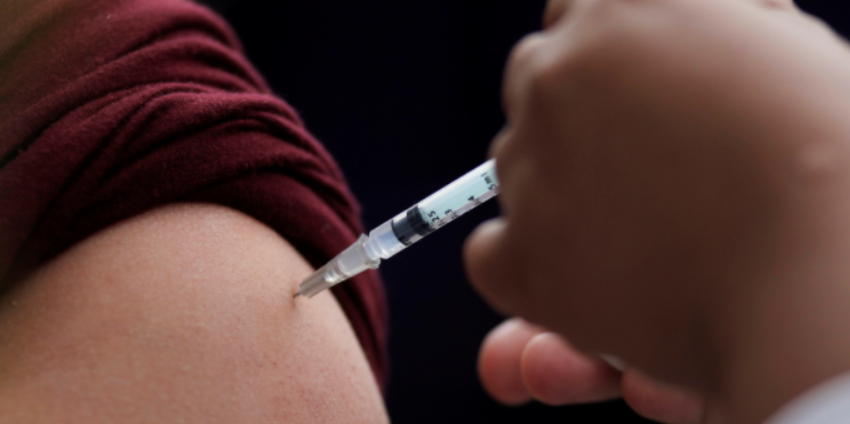Over 15,000 Cases of Mumps Reported in Kerala

Representational Image
In a concerning development, Kerala is currently grappling with an outbreak of mumps, a contagious viral infection. Over the last two months, the state has recorded a total of 15,637 cases as of March 22.
The outbreak, which has been escalating over the past five months, has spread across various districts of Kerala, with Malappuram and Kozhikode recording the highest number of cases.
Confirming the outbreak, the Union Health Ministry said that the National Centre for Disease Control in the state had been alerted. Besides Kerala, there have been reports of a surge in mumps cases in Andhra Pradesh, Telangana and Maharashtra.
Characterised by fever, headache, and painful swelling of the salivary glands on both sides of the face, Mumps is an airborne disease that primarily affects children, posing a risk to the younger population.
Pediatricians in the state are expressing apprehensions that the perceived harmlessness of mumps might be misleading, particularly when it spreads widely in a community lacking immunity. They have also expressed worry that such increase in cases could result in a rise in mump impacts such as pancreatitis and meningoencephalitis.
In 2014, Kerala took the initiative to substitute the second dose of measles vaccination in the Universal Immunisation Programme (UIP) with the MMR (mumps, measles-rubella) vaccine as a measure to combat Rubella.
Rubella is a highly contagious virus that is characterised by symptoms like mild fever, sore throat, and rashes in the face and extends across the body. If contracted during pregnancy, Rubella can lead to miscarriage or serious defects in the offspring during the pregnancy.
Nevertheless, in 2017, the Union Health Ministry decided to incorporate Rubella vaccination into the UIP, replacing the two doses of measles with the MR Vaccine (Measles-Rubella), and Kerala followed the same protocol.
In the wake of a surge in mumps cases in Kerala, the state authorities have reached out to the Central government. They have expressed the need to replace the current MR Vaccine used in the UIP with the MMR vaccine.
Pediatricians say that the MR vaccine introduced by the Union Health Ministry does not provide coverage against mumps and advise choosing the MMR vaccine, which provides protection against all three diseases.
“Mumps is a vaccine-preventable disease, and the low mortality rate may have encouraged the use of MR Vaccine,” Dr. Jayasree, Professor of Community Medicine at Pariyaram Medical College, Kannur, told this writer. Nonetheless, she noted that support for the MMR vaccine had been long standing, with the Vaccination Committee of Kerala and Indian Academy of Pediatrics (IAP) consistently advocating it.
Measles has traditionally received more attention than mumps due to its potential for significant morbidity and mortality rate. However, the Kozhikode Medical College has recorded several cases of mumps-related complications, such as encephalitis, epilepsy, aseptic meningitis and acute pancreatitis, some of which have increased in number.
Mumps can have a significant impact on the reproductive glands, or gonads, of both male and females. This includes a rare yet specific risk of infertility or a long-term reduction in sperm count in males. However, there is no agreement in the medical community on this matter due to the insufficient research.
Dr. Deepak, a Professor of Community Medicine at Karuna Medical College in Palakkad, speaking with this writer, highlighted that primary infertility in males due to mumps is rare, but it can lead to reduced sperm count in individuals with orchitis. He said the evidence predominantly originated from Western countries, indicating a lack of sufficient research on this issue in India, which contributes to a lack of awareness in the community.
Dr. Raman Kutty, a pediatrician and retired Professor from the Achutha Menon Centre for Health Science Studies, told this writer that there was evidence, and a few clinical cases had demonstrated a link between mumps and low sperm count in men. However, he emphasised that this occurrence was infrequent, clarifying that not everyone affected by mumps became infertile.
Dr Jayasree felt that it was highly unlikely that mumps could lead to infertility in women. There is currently a lack of research to support this claim. However, she acknowledged that this infection in pregnant women in their first trimester could potentially lead to abortion.
The majority cases of mumps are being reported among unvaccinated children, which demonstrates the significance of raising vaccination rates in general. Patients usually recover within about two to three weeks with rest and regular treatment, without the need for specific medical interventions.
Around 30% of infected cases are asymptomatic. Therefore, a significant number of mumps cases go unreported, increasing the risk of spread because transmission can start even before symptoms appear.
Health experts suggest that increasing public awareness regarding the disease and isolation of identified patients for at least two weeks is the most efficient approach to mitigate disease transmission.
The World Health Organisation recommends that vaccine strategies for mumps control should be closely integrated with existing efforts to eliminate measles and control rubella. This holistic approach ensures comprehensive protection against these vaccine preventable diseases.
The writer is a research associate with the National Platform for the Rights of the Disabled. She is based in Kerala.
Get the latest reports & analysis with people's perspective on Protests, movements & deep analytical videos, discussions of the current affairs in your Telegram app. Subscribe to NewsClick's Telegram channel & get Real-Time updates on stories, as they get published on our website.
























